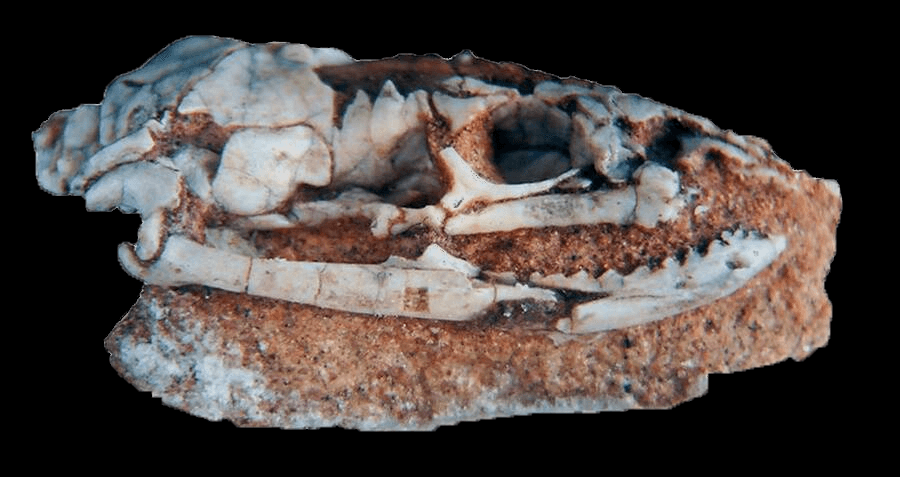Ancient Serpent with Legs: The 95-Million-Year-Old Skull That Rewrites Snake Evolution Forever
Researchers also found that Najash possessed the same shape, position, and connections as the jugal — the rod-like bone that sits behind the eye of modern snakes — more typically found in lizards. From the time of Najash, the lower bar of the snake’s jugal was eventually lost in evolution, leaving behind only a rod-like bone instead.
What this tells us about snake’s evolution is that these animals were evolving the biological ability — most notably skull mobility — to consume larger prey, a distinct trait among today’s snakes.
“It’s quite spectacular what they’ve been able to do as completely limbless animals,” Caldwell said. “And they’ve been doing it for a very long time.”
Now that you’ve learned about the hind-legged ancestors of modern snakes, read about Titanoboa, the 50-foot prehistoric snake of nightmares. Next, find out how scientists re-discovered an ‘extinct’ snake in South Africa.












